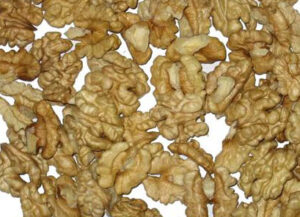Exporting Walnuts to China: A Growing Opportunity for International Suppliers
China’s demand for imported walnuts has surged over recent years, driven by a rising interest in healthy snacks and premium-quality nuts. For walnut producers, exporting to China presents a lucrative opportunity, but understanding market dynamics, regulations, and packaging requirements is essential. Here, we provide a detailed guide to help you successfully export walnuts to China, covering market demand, compliance standards, and effective distribution strategies.

Why Export Walnuts to China? Understanding Market Demand
Chinese consumers have increasingly embraced walnuts due to their nutritional benefits, with the nut often regarded as a “brain food.” The country’s growing middle class and health-conscious population have driven demand for premium imported walnuts, often seen as superior in quality to locally produced varieties.
- Health Consciousness: Walnuts are popular among health-conscious consumers in China for their high levels of Omega-3 fatty acids, antioxidants, and proteins, contributing to overall wellness.
- Gift Market: High-quality walnuts are also used as gifts during festivals like Chinese New Year, making premium imported walnuts particularly attractive around holiday seasons.
- Variety Preference: Imported walnut varieties, such as Chandler and Howard, are popular in China for their mild flavor, light color, and larger size, which are often perceived as indicators of quality.
Key Types of Walnuts in Demand in China
Chinese consumers have a preference for certain types of walnuts based on their flavor, color, and shell type. Identifying these preferences can give exporters a competitive advantage.
- In-Shell Walnuts: These are popular for their freshness and perceived premium quality, especially when imported from well-known regions like California and Chile.
- Shelled Walnuts: Shelled varieties are convenient and preferred by consumers looking for quick, ready-to-eat snacks. High-quality shelled walnuts with minimal damage are especially desirable.
- Organic Walnuts: There’s a growing demand for organic products in China, especially among health-conscious consumers, making organic certification a valuable selling point.
Compliance and Regulatory Requirements for Exporting Walnuts to China
China has stringent regulations governing food imports, especially in categories such as nuts and dried fruits. Adhering to these compliance standards ensures smoother entry into the market and builds trust with Chinese buyers.
Essential Documentation and Certifications
- Phytosanitary Certificate: This document, issued by the exporting country’s agricultural authority, verifies that the walnuts meet China’s strict plant health standards and are free from pests and diseases.
- Certificate of Origin: Identifying the country of origin can influence import duties and is also a requirement for customs clearance.
- Inspection and Quarantine Certificate: China’s General Administration of Customs (GACC) mandates that imported walnuts pass a quality inspection upon arrival. This certificate helps streamline the customs process.
- Organic Certification (if applicable): Certification is essential for organic walnuts to market the product as organic, which has strong appeal in the Chinese market.
Packaging and Labeling Standards
China’s market requires precise packaging and labeling to ensure product quality, safety, and compliance. Exporters should adhere to these standards to facilitate a smooth import process.
- Labeling: Labels should display the product name, nutritional information, ingredients, origin, production and expiration dates, and importer details in Chinese.
- Premium Packaging: Attractive, high-quality packaging is essential in the Chinese market, especially as walnuts are often given as gifts. Consider using culturally appealing designs or adding holiday packaging to enhance marketability.
- Sealed Packaging: Airtight, sealed packaging helps maintain walnut freshness during long transit times, which is crucial for quality retention.
Effective Market Entry Strategies for Walnuts in China
Building a strong presence in the Chinese walnut market requires strategic planning, partnerships, and an understanding of consumer preferences.
Partner with Local Distributors
Collaborating with established local distributors can streamline the process of entering China’s complex market. Distributors can help your walnuts reach premium grocery stores, online platforms, and specialty food shops, popular outlets for imported nuts. Partnering with a distributor familiar with local consumer habits can enhance your market reach and visibility.
Leverage E-Commerce Platforms
China has one of the largest e-commerce markets globally, making online platforms a valuable tool for walnut exporters. Websites like Tmall, JD.com, and Alibaba allow you to sell directly to consumers, reaching a broader audience. E-commerce also provides an opportunity to offer bulk packaging and bundle deals, which are popular among Chinese buyers looking for value.
Highlight the Health Benefits of Walnuts
Chinese consumers are increasingly health-conscious, so emphasizing walnuts’ health benefits can be an effective marketing strategy. Create branding that highlights walnuts’ heart, brain, and overall health benefits, leveraging social media platforms like WeChat and Douyin (TikTok) to build brand awareness among health-focused consumers.



